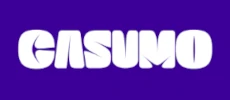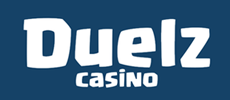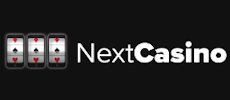 July 24 2025
July 24 2025
Many UK players think lost money on gambling sites cannot be recovered. But that’s not always true. If the operator broke rules, players have grounds to claim refunds. The UK’s gambling market is tightly regulated. Under strong consumer protection laws, players can challenge unfair losses if they follow the correct steps. This article explores situations where refunds have been granted, backed by real cases and data. We’ll explain how to get money back from gambling sites if you were treated unfairly. We’ll build a roadmap for players to follow.
Some losses go beyond bad luck. They happen when operators fail to follow rules or act disrespectfully. In these situations, players should consider casinos with a spotless reputation and fair conditions. Operators ranked as the best payout gambling sites usually offer high return rates and face fewer disputes over bonus terms. Using trusted lists of online casinos, players can avoid a range of issues that lead to lost funds. Here are the most common scenarios where knowing how to get your money back from gambling sites comes in handy:
If you’ve registered with GamStop or used an operator’s self-exclusion tool, the site must block your access and return any remaining funds. In a forum discussion, a user referred to a case where a player lost £450 after incorrectly being allowed access post-self-exclusion. Other participants highlighted that under the LCCP, the operator should have refunded the balance. They noted:
"They should refund you the 450 quid... LCCP ... Licensees must... return any funds held in the customer account." (from AskGamblers.com forum)
System glitches, deposit failures or stuck withdrawals can cost you. For example, if your deposit shows but the underlying transaction never occurred, you can challenge the loss and eligible banks can support chargebacks later (see Chargeback protections section).
Operators sometimes hide wagering requirements or sudden changes to terms after you start. According to a Gambling Commission consumer survey, 16% of complaints involve misleading promotions. If the terms were unfair or changed mid-way, you have solid grounds to dispute.
If a site charges you without permission or exceeds agreed limits, you can dispute the transactions with the operator or via your bank.
Gambling without a UKGC licence is illegal. If a site took your money, you can report it and request a refund even if you know how to get money back from gambling sites UK. While the UKGC may take enforcement, your direct refund route is often via chargeback or legal avenues.
Here’s a step-by-step path to claim lost money:
UK players enjoy strong protections, thanks to multiple levels of protection. The main one is UK Gambling Commission (UKGC). They licence operators and enforce compliance. While they don’t settle individual claims, they penalise violations like failing to enforce self-exclusion or misleading players.
ADR bodies like IBAS and eCOGRA are approved to handle unresolved disputes. Cases passed to ADR in 2019-20 totalled 5617, of which 3118 were resolved.
If you've been mischarged or lost money due to glitch or failure of service, banks may reverse the transaction. But cards issued by banks such as Monzo may treat gambling transactions as final. If they refuse, escalate it to the Financial Ombudsman Service.
Consumer Rights Act 2015 applies to digital services. If a gambling site misrepresents terms, you can claim under it for "services not as described". It’s a final option for how to get money back from gambling sites UK.
These are real-world scenarios where refunds were secured:
UK players can reclaim funds from gambling sites but it requires effort. Know how to get your money back from gambling sites, gather proof and follow the dispute path. Use operator complaints, ADR, bank chargebacks or UKGC reports as needed. Don’t accept poor treatment and take action if something feels wrong!


Malta-License (EU)


Malta-License (EU)
 There is a No Deposit Bonus available: 20 Free Spins
There is a No Deposit Bonus available: 20 Free Spins


Malta-License (EU)


Malta-License (EU)



Malta-License (EU)


Malta-License (EU)


Malta-License (EU)


Malta-License (EU)


Malta-License (EU)


Malta-License (EU)
 There is a No Deposit Bonus available: 10 Free Spins on Book of Dead
There is a No Deposit Bonus available: 10 Free Spins on Book of Dead


Malta-License (EU)




Malta-License (EU)


Malta-License (EU)

